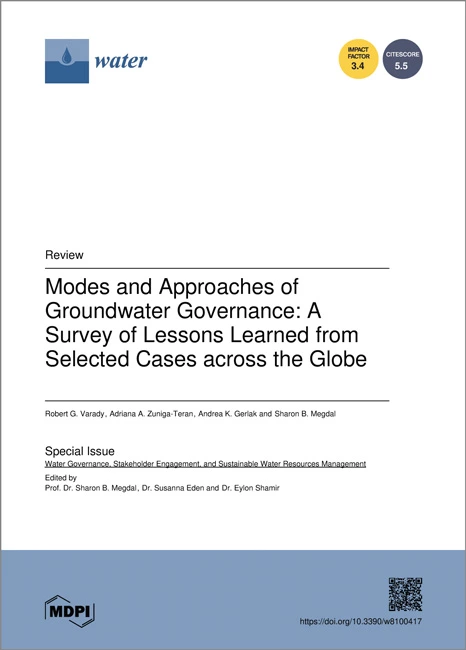
https://www.mdpi.com/2073-4441/8/10/417
The growing importance of groundwater as a critical component of water supply for agriculture, urban areas, industry, and ecosystems has increased the need to protect aquifers worldwide from overexploitation. Water governance is central to achieving this end. Thus, the article "Modes and Approaches of Groundwater Governance: A Survey of Lessons Learned from Selected Cases across the Globe", by Robert G. Varady, Adriana A. Zuniga-Teran, Andrea K. Gerlak, and Sharon B. Megdal from the University of Arizona, analyzes ten selected groundwater-governance case studies from diverse regions to identify characteristics of good governance practice. The cases selected varied across four elements - institutional setting, availability and access to information and science, robustness of civil society, and economic and regulatory framework. All four of these elements were found to have important impacts on governance by affecting incentives, conflict, power relations, effectiveness, and sustainability of process and outcomes. In sum, critical capacities of governments at multiple levels and civil society actors were found in the characteristics of shared governance. This article was published in a Special Issue of the journal Water with the title "Water Governance, Stakeholder Engagement, and Sustainable Water Resources Management," edited by the WRRC's Sharon B. Megdal and Susanna Eden and Eylon Shamir of the Hydrologic Research Center, San Diego, CA.

